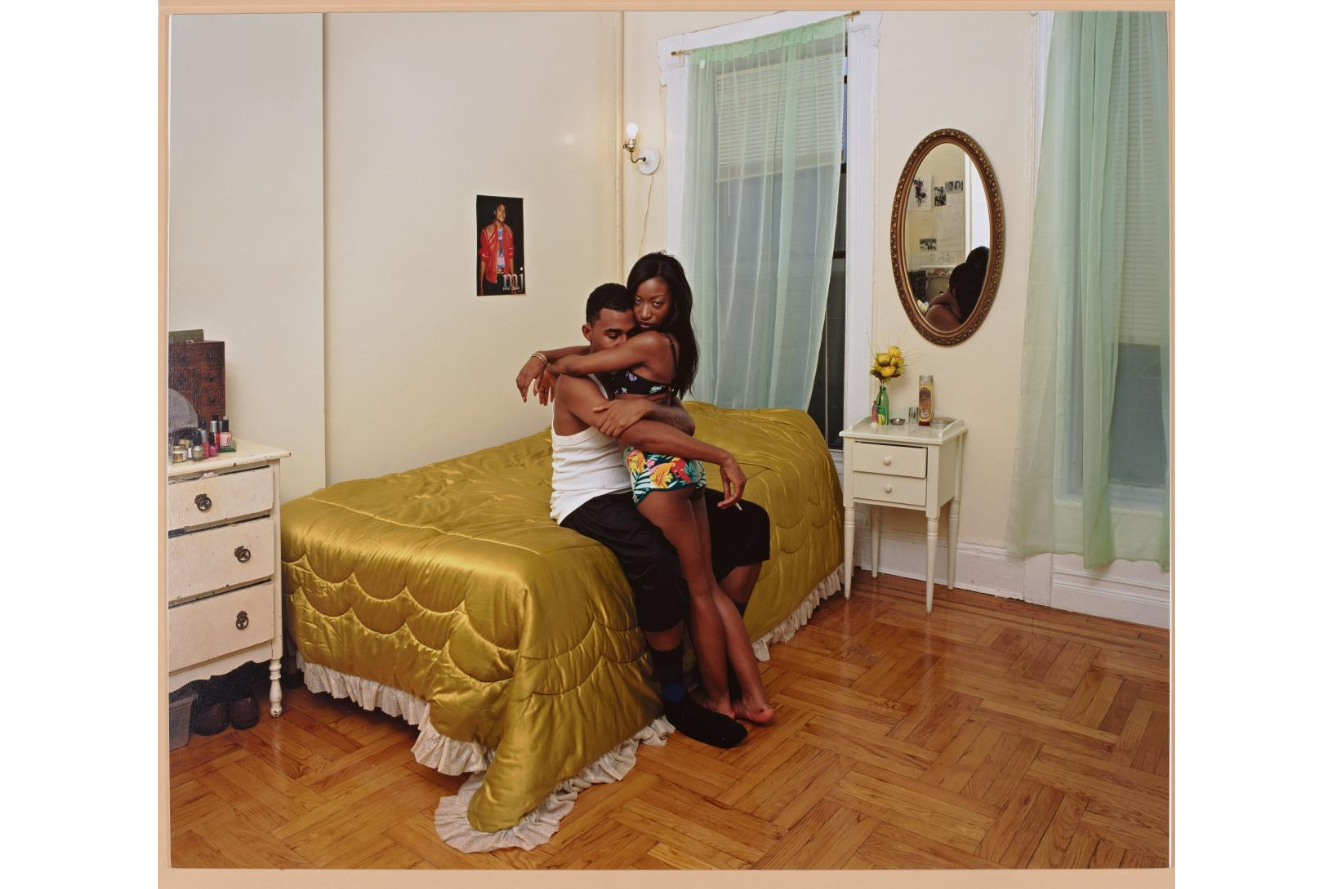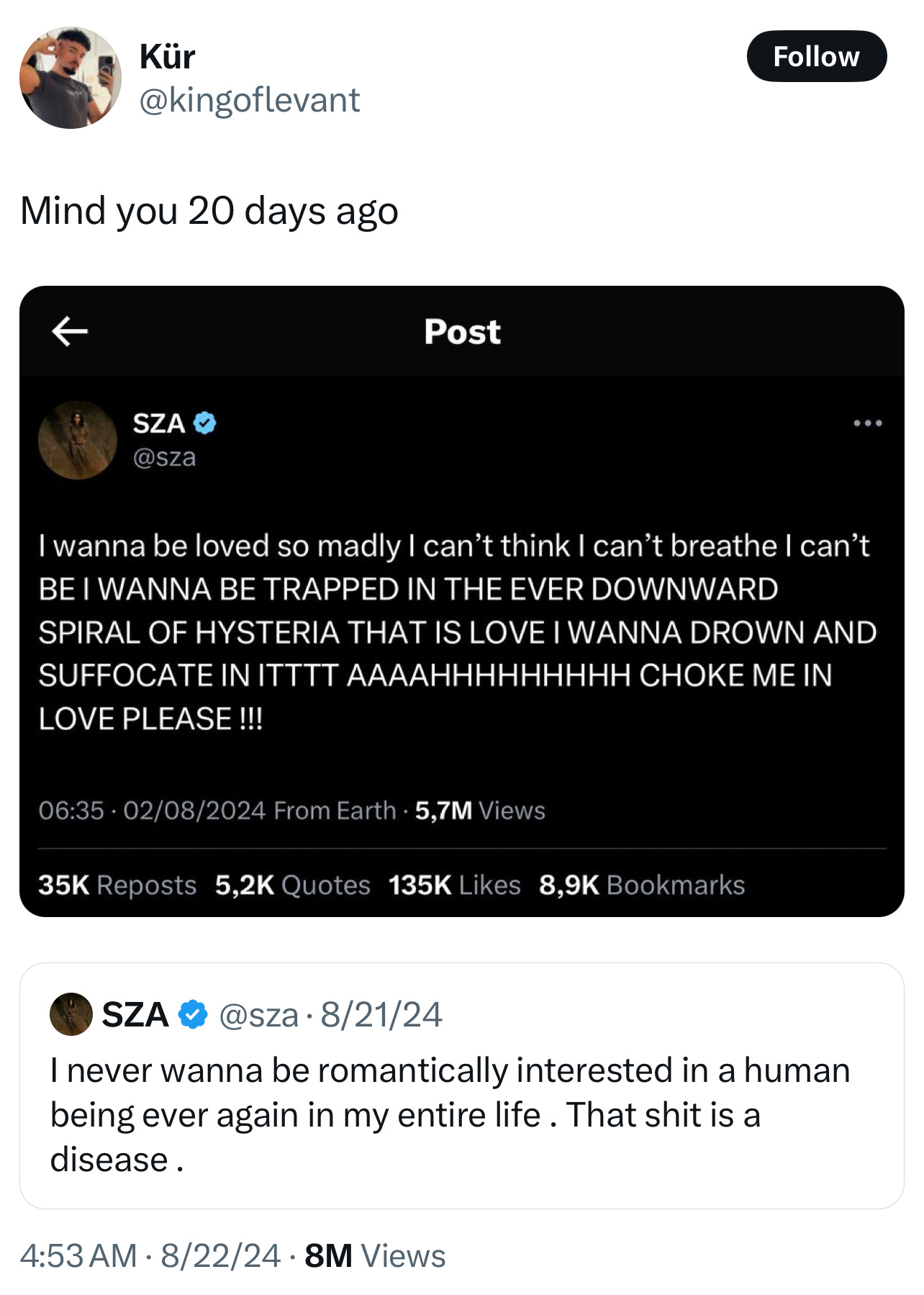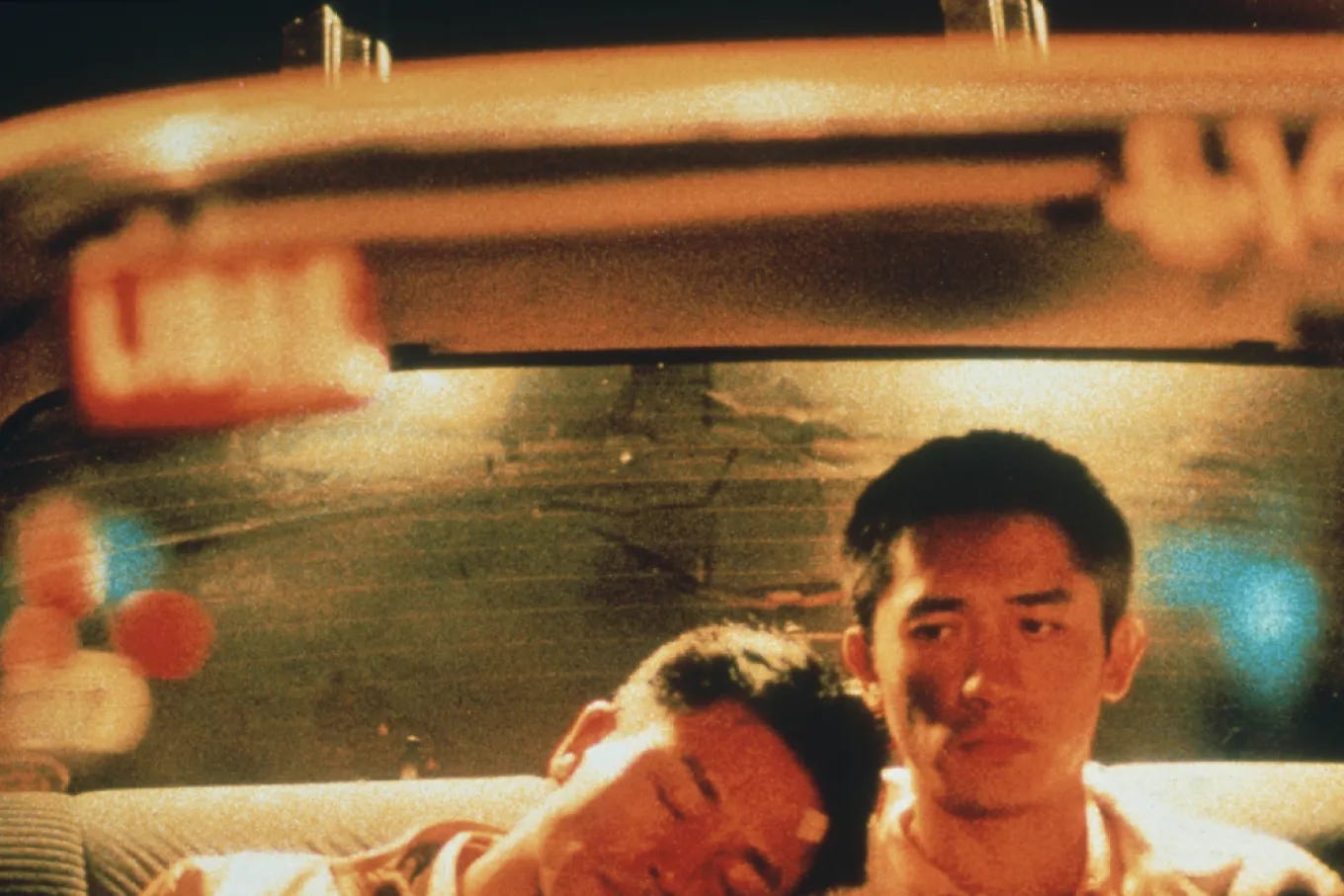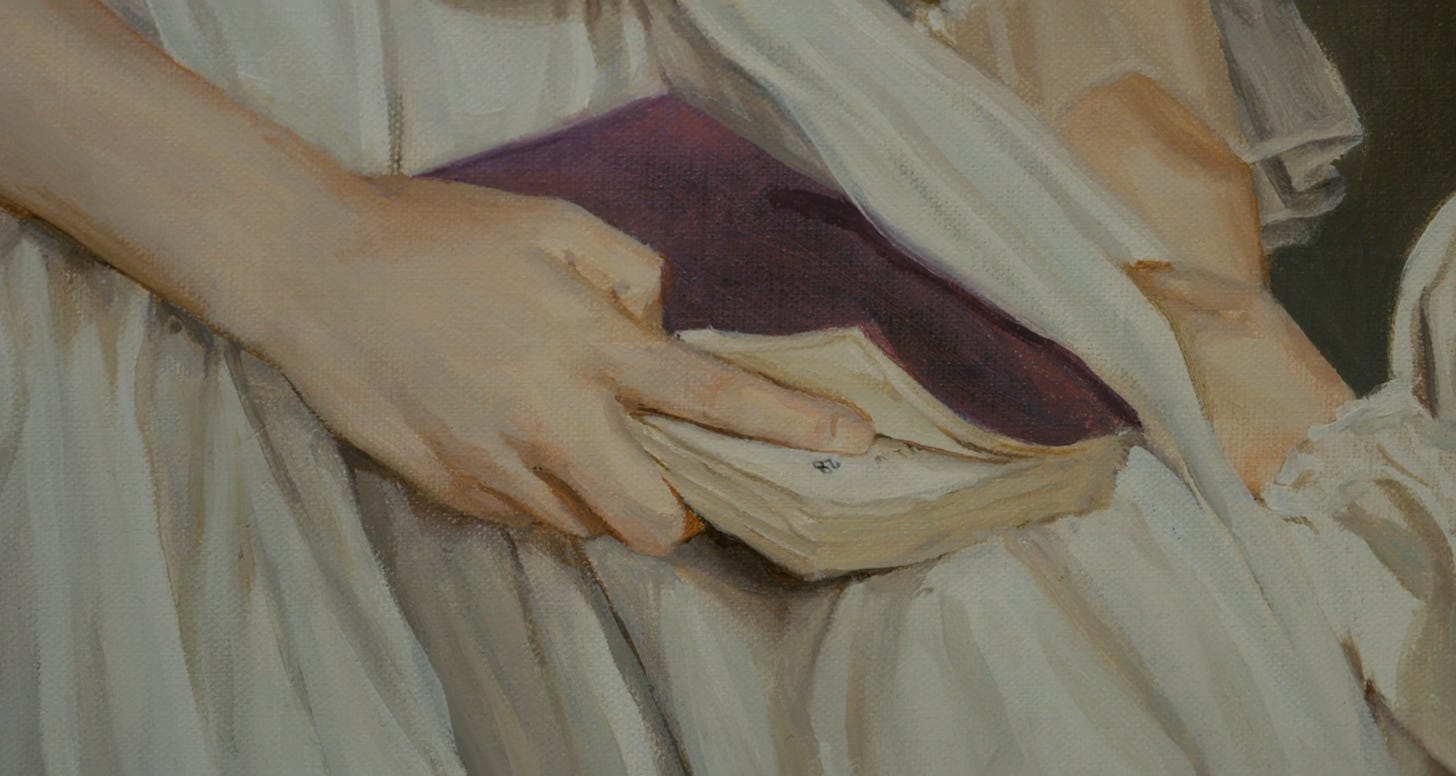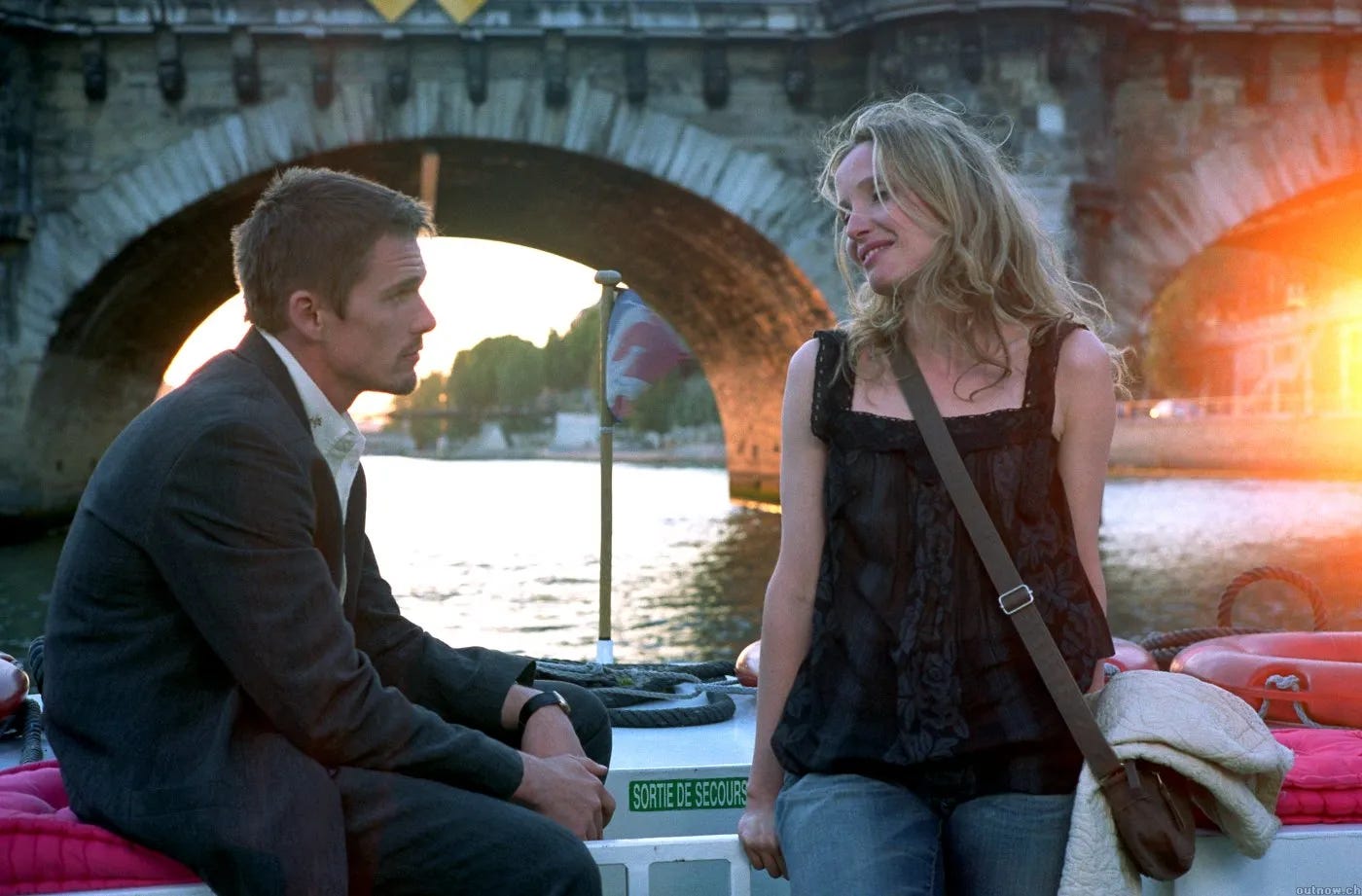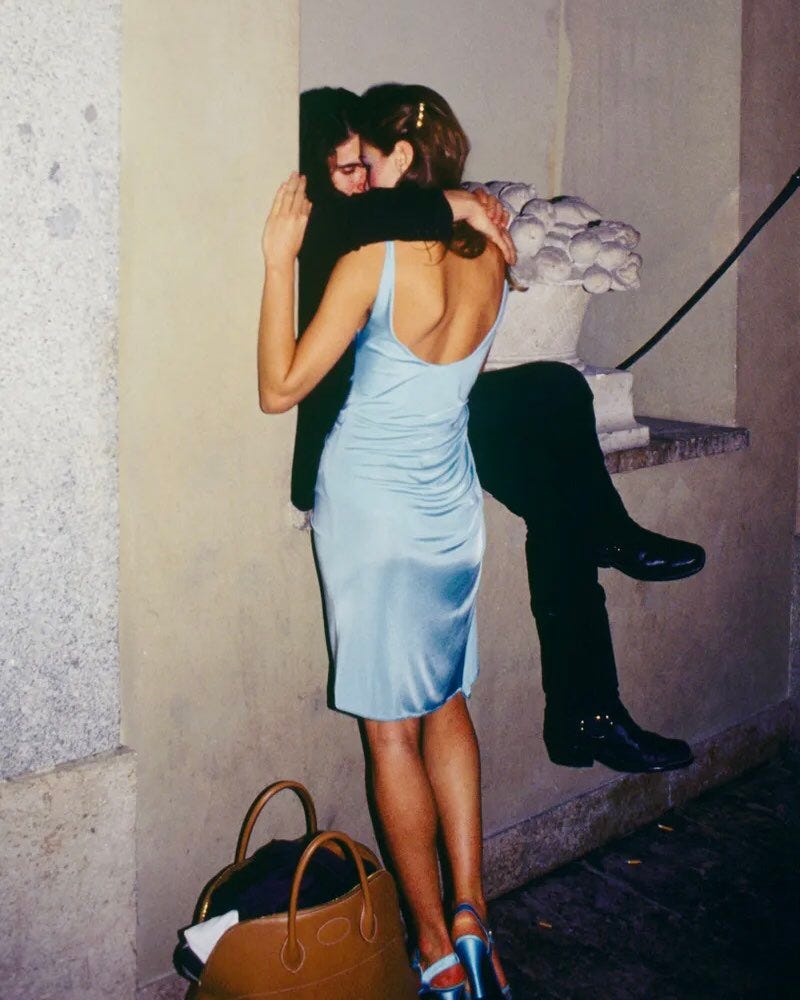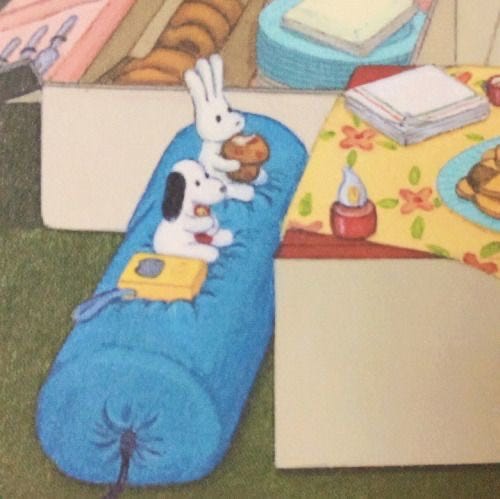Is The Internet Affecting Your Love Life?
modern romance, the internet, hinge and an interview with JP brammer
Today’s newsletter is sponsored by Hinge. It’s about modern romance, the internet, and how to approach cuffing season 📧. It also features a fun interview with .
“Cuffing season refers to a period of time when single people begin looking for short-term partnerships to pass the colder months of the year. Cuffing season usually begins in October and lasts until just after Valentine's Day.” - Merriam-Webster
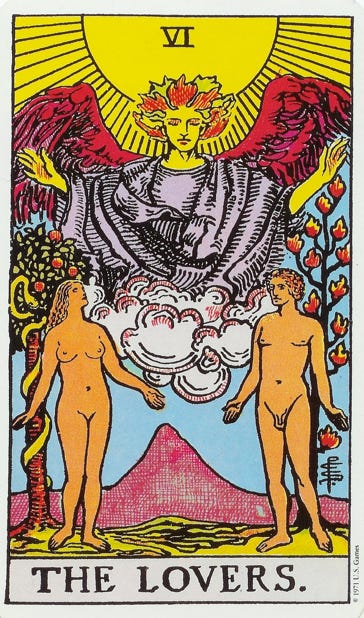
The internet will try to convince you that there is no worse time to be single than now.
A few weeks ago, my TikTok feed became flushed with discouraging skits of people braving the monotony of the staple questions experienced on first dates. The necessary but canned ‘where do you work?’ / ‘how long have you lived here?’ / ‘where do you go out on the weekends?’ variety that can feel underwhelming and rehearsed.
I scrolled a bit only to be confronted by self-proclaimed dating coaches, the ones who offer generic and unhelpful advice like “if he wanted to he would,” projecting their own dating insecurities to their followers. These creators position themselves as ‘experts’ and give sermons packed with clapbacks and catchphrases. It’s entertaining, sparse on wisdom, and a tad predatory, transparently tuned for engagement.
And don’t even get me started on the TikTok tarot love readings. That’s for another essay.
The internet doesn’t seem that hot on romance but hey, maybe I’m part of the problem. I’d rather binge-watch a 50-part series about someone’s dating drama (Who TF Did I Marry) than a 50-part front-facing camera series of real-life dating success.
In a polarizing duet of essays, Do Women Even Like Men Anymore? and Do Men Even Like Women Anymore?,
also points a finger at the internet as a cause for our romantic woes. In the realms of heterosexuality, Taylor argues that the internet has created an environment where it is normal for women who are seeking men to blatantly state that they hate men (think of the “all men are trash” narrative) and where seeking romantic attention too earnestly makes you a “pick me,” a no-no for any self-proclaimed feminist or “girl’s girl.” Their platformed dislike of men stems from the real-life misogyny and violence against women but is flattened on TikTok to a clippy headline. To balance things out, Taylor argues that the internet has also become a breeding ground for incels. These men hate women because of their inability to obtain their romantic attention (re: The Feminist by Tony Tulathimutte). Concerned about being seen as “simps” and conspiratorially suspicious of women, for men like these, chivalry is no longer cool.And so, the internet has divided these two extremes into opposite corners of the high school dance. Both held firm by their belief systems, unwilling to ask the other out.
But: these two spheres are in conversation whether they like it or not. The former is rooted in harm prevention, platforming disinterest in men to protect other women while the latter is constructed to protect the male ego. As urgent as the dialogue around these two tentpoles is, their nuance is lost on the internet where algorithmic engagement is prioritized. Context is annihilated. Still, the two opposing sides share a platform, charged by the internet: being single may suck but trying not to be single and actually dating is somehow worse. This is the trap of modern romance.
Recently, The Atlantic published an essay called The People Who Quit Dating. In it, writer not singer Faith Hill reports on the tax of modern dating when you are desperately entranced in the pursuit of romance. Hill stresses the anxiety some of her subjects experience (ie. “is she going to text me back?”) and the frustration of those who are disappointed by the lack of options. It’s essentially a campaign for decentering romantic love and taking the “it will happen when you’re least expecting it” mantra to heart.
Although I do not believe that you need to reorient your world around finding a partner (I fiercely believe that you and your partner should expand each other’s worlds, not replace them), my thinking is closer to that of Celine Dion’s than The Atlantic. That “love comes to those who believe it.” You gotta live your life but you have to remember to leave the light on too.
But the dating pessimism found on the internet comes at a time of a boom in romance. At least, in the fictional sense. The romance genre accounts for over a third of fiction sales as It Ends with Us, the film adaptation of Colleen Hoover’s commercial fiction bestseller, earns almost $310 million in global box office sales. This is the biggest romantic drama since A Star Is Born.
Over the past few years our consumption habits would say that we are ripe for romance with the popularity of shows like Love Island and Love is Blind against staples like The Bachelor1. So… what has happened?
How does one marry the real-life pessimism associated with dating with the urge to consume stories of love? And what does that mean for cuffing season?
Hinge’s No Ordinary Love zine merges the trials of modern romance with the electricity of romance literature. The project pairs real-life Hinge matches with authors, like
and Brontez Purnell, to adapt dating success into romantic short stories. I have always been fascinated with the relationship between literature and brands and so, when Hinge reached out to see if I would be involved in the project, it was a no-brainer.Author, advice columnist, and fellow newsletter writer, John Paul Brammer of ¡Hola Papi!, penned a story for the zine called “You Again.” “You Again” begins where a lot of online courtship ends:
Two people (Jon and Maura) match on Hinge and set up a date,
One of them cancels, and…
There is no follow-up date so things fizzle out.
This is typical: life gets in the way, people move on, and “if he wanted to he would,” right? However, in this story – the real-life version and the ‘fictionalized’ one – they re-match months later and have been going steady since. What started as a fumble turns into a fairytale.
I sat down with Brammer to discuss the process of writing the story, pick his brain about modern dating, and get hot takes on cuffing season. He’s a prolific advice giver so why not take advantage? The interview below has been edited for concision. My questions are in bold and JP’s responses are indented.
In your own words, what do you do?
I write an advice column called Hola Papi and have a book of the same name from Simon & Schuster that came out in 2021. Right now, I am working on a young adult novel that’s also illustrated by me.
Hola Papi was an opportunity for some people to really bear their soul and ask questions. It has traveled around and gone from Into to Conde Nast to New York Magazine and now it's on Substack. I have always kept the formula where it starts funny then gets a little heartfelt before taking the emotions presented to me in the letter. There's a lot of earnestness, there's a lot of silliness, and that's still the recipe for an Hola Papi column. And yeah, that's the history of me giving advice. It was supposed to be a joke and it went too far.
Whenever someone reads autofiction, they want to know what is real and what isn’t. How did you approach the process of capturing the realities of Jon and Maura’s coupling while creating a work of romantic fiction?
I think my idea was to find things in real life about the way they met that felt like it could be fiction. I kind of wanted this double-edged sword where it can't be real but everything I wrote in the story is true. Jon and Maura do have weirdly matching tattoos on the same arm for example.
I wanted to hone in on those weird little coincidences because to me a love connection is a matter of a series of improbable coincidences, like being free at the same time, and being in an emotional place where you can date and being in the same city and then matching each other on an app. All these things are so unlikely. It almost feels like a conspiracy which is what I wanted to get at with the whole piece.
I have a couple of questions on that. The initial correspondence between Jon and Maura was anticlimactic. Their match leads to them cancelling a date and forgetting about each other for a bit. This is how a lot of people’s interactions go on dating apps.
Mhm. Yeah.
It's quite reminiscent of the challenges with online dating where there’s a lot of energy that just dies. What I like about these two is that they weren't actually ghosting each other. They just had other things going on in their life and had really valid reasons to put down their phone. When talking to them, was there any shade detected when it came to rematching with each other? As in, ‘this person fumbled me, so why should I take them back?’ Or did they just accept each other with open arms?
That’s what I liked about them so much… I mean, they're a very lovely couple. They both seemed so open-minded and willing to accept the energy that the universe was giving them.
I think that to find success in a digital dating landscape, you do have to have that good faith. You do have to have that kind of warmth for another person enough to be like, “Maybe we were both just in the wrong place at the wrong time back then. Let's give this another shot.” And I think that if you approach it too cynically and if you hold on to grievances too much, it can get in the way of things and it can maybe make you miss out on something wonderful. And so, one thing I really liked about both of them and why I think they work so well together is that they were both open to just giving it another shot. That's the sort of optimism I think you need to make it in our current dating landscape.
What is your take on the right timing versus the right person? Do you think the two are interchangeable?
I love the idea of that question. It was so interesting to me when writing this and I wanted this story to flatly say that there's no concrete answer. I think what I'm trying to question is this series of coincidences versus fate.
There’s this idea of if they hadn't done everything exactly right, they wouldn't have ended up together like this. And then the other end of that question is that love would have found a way. And so there are dueling energies between those things. Which one's correct? Is it a combination of the two?
It is probably a collaboration between these two people that always had the chemical ingredients to meet each other and have a reaction to each other that would have ended up in a relationship but to activate those chemicals certain things do have to happen. It's a celebration of those questions for me. It's less trying to answer them which is the opposite I guess of what an advice columnist would do.
In the story, Maura does a lot of manifesting to call in the one from the universe. How often do you hear that from people that write in?
In the LGBTQ+ community, there are a lot who are into astrology and into a certain sort of mysticism. Depending on the day you catch me, I really go back and forth.
I think that the universe does work in mysterious ways that we don't quite understand and I think most people are just doing their best because we don't have the answers. We're trying to as best we can come up with them and Maura has hers, I have mine, Jon has his. We all have our own. And yeah, it was just again fitting in with the theme of celebrating questions rather than answering them. It's sort of the same thing where it's just like I'm not saying that Maura was correct and that she successfully coaxed Jon out of the universe and I'm not saying she's wrong either.
I like the theme of openness and how they both remained open the second time that they met. I think a lot of the time on the internet we see advice that is like “if he wanted to he would, no second chances” and yet Maura and Jon had this fearless, egoless approach in terms of recoupling. How do you feel about the prevailing logic on the internet around no second chances?
I think it's a reflection of how the internet works: where all your past crimes and sins can be immediately conjured up again in the form of screenshots or a post as if it just happened yesterday. And real life isn't so much like that. And so, even beyond romance, I think that the internet is short on giving people a second chance. It's short on good faith. I would say sometimes that's warranted and sometimes it's not. But yes, I think that in real life we are more prone to giving our friends, loved ones and potential love connections another chance.
And the internet would probably call us pathetic in many cases for it. But the internet is full of people who exist just to dunk on other people. So you shouldn't be thinking too much about what the internet might think. The internet is not here to lead you to happiness.
Within reason, I think second chances are great. And I think that sometimes they are required and can lead to something wonderful because we're all beings in constant motion. We're all changing. We're all sort of arriving at new conclusions all the time. Of course, you don't want to be played like a fiddle. You don't want to be a fool. You can't just give everyone a second chance. But in situations like these, it was very much like, “Yeah, that didn't work out, did it? But what if we gave it another shot?”
Where do you think the role of the internet and dating apps play in a world where we want to have more real-life connectivity?
I think that as long as we have smartphones in our pockets there will be dating apps. We're constantly getting new technology and we're constantly shifting how our identities function in a digital world like what kind of self we want to project out there. But for me, I am still on the dating apps and I still go on dates because of people I meet online. I think it's important to have a sense of whimsy about the whole thing. If something good happens, then something good happens. And that's I think an important thing to keep in mind for meeting people in real life as well. So, yeah, I think that the etiquette around online dating and what we're supposed to be doing very much dovetails with us not really knowing what the etiquette or what we're supposed to be doing with social media or the internet in general. We're just human beings trying to figure it out as we go along.
That’s perfect advice for what to do this cuffing season. JP - thank you.
Of course. Talk later.
Thanks for reading! Let me know what you think about the internet and dating in the comments. Stay warm out there folks ❤🔥
LOOSEY is a bi-weekly newsletter about culture, technology, and the way we live. If this is something you like, consider subscribing and sharing. Let’s be friends on Instagram.
I am not affiliated with any of the aforementioned movies or television series.






